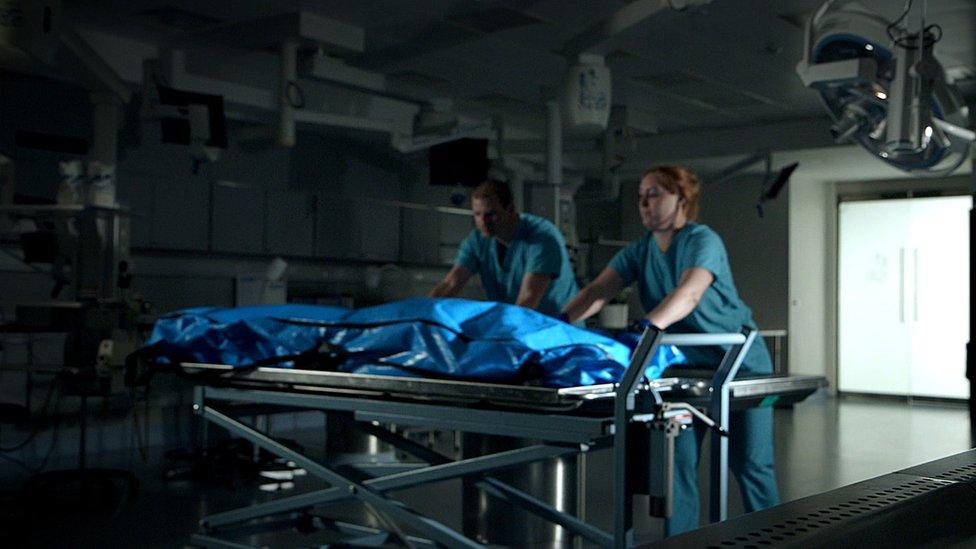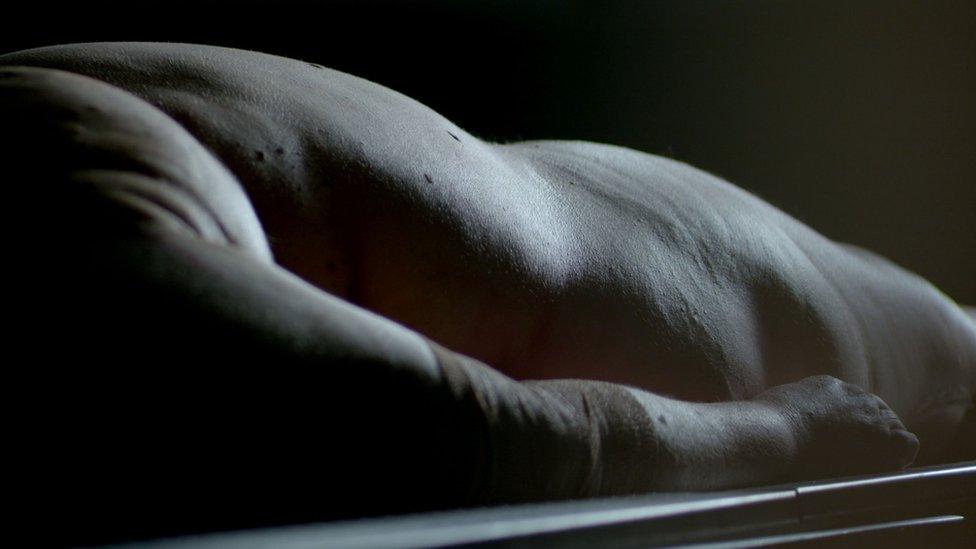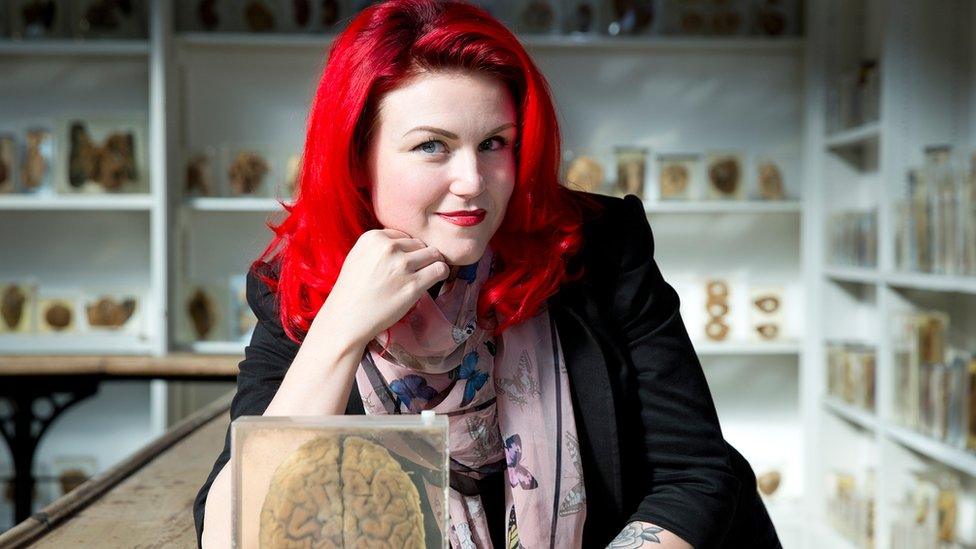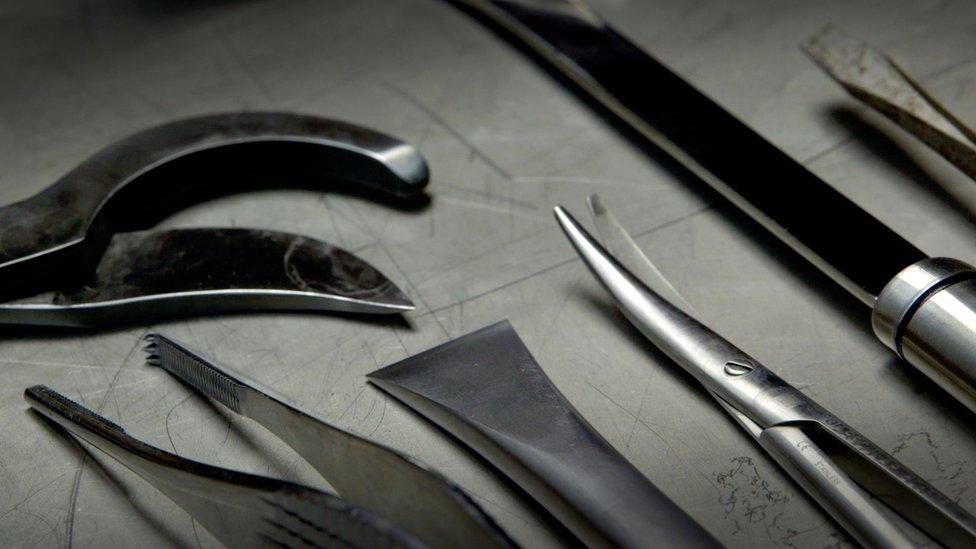Dissecting the issue of obesity, literally
- Published
BBC Three is showing an autopsy to highlight obesity
You probably already know that obesity is a problem.
It's a problem for society, for the NHS... for individuals, for families.
And that's also a problem. We've heard it all before, right?
A BBC Three programme is tackling the issue by allowing viewers to watch an obese body being dissected.
Obesity: The Post Mortem on BBC iPlayer is being billed as a UK "televised first".

A scene from Obesity: The Post Mortem
Viewers will see the filmed autopsy of a 17-stone woman in graphic detail.
It's not for the faint-hearted.
Carla Valentine, an anatomical pathology technologist, is one of the team carrying out the procedure.
She says too many people think the problem is about looks - rather than health.
"If popular media is to be believed then one of the 'issues' is that obesity is about vanity rather than health - many magazines put forth the idea of being 'beach ready' or getting a 'bikini body' or curves like Kim Kardashian," she tells Newsbeat.
"This programme is not about that.
"It's not about the visual effects of obesity but the inside; the dangerous pathological consequences most people will not have seen or even thought about before."
Is it just for shock value?

Viewers see the body up close, being dissected
The body being cut up belonged to an American woman who died because of a heart attack linked to her obesity.
You can see the yellowy fat, how much of it there is and where it is, including around the organs.
"Statistics state that almost three quarters of British adults are likely to be overweight or obese in less than 20 years", Carla explains.
She rejects any suggestion the programme is just a shock show.

Carla Valentine
"Gratuitous? As in 'done without reason'? I'd say it's absolutely not. Given the statistics and the fact that other "anti-obesity" campaigns perhaps aren't having the desired effect it is certainly time to try something new... perhaps this documentary will encourage more discussion about the other core reasons for the problem."
Why are we becoming a more obese society?
The most common measure of obesity is BMI, external (Body Mass Index).
It's a way calculating if your weight, compared to your height, is "healthy".
The causes are varied. We sit down more than generations gone by - to drive, to work in offices, to entertain ourselves at home in front of a screen.
Our food has changed - with processed foods, "junk food" and more of it packed with sugars and fat, all available 24/7.
Being dangerously overweight makes many people miserable and limits the things they do.
There's a consensus that medically it shortens your life and raises the risks of cancer.
Carla hopes viewers really do stop and think: "Seeing the human body opened and examined shouldn't be shocking. It's how we all look inside. I hope people will learn to think twice about the delicate nature of their physical selves."

Find us on Instagram at BBCNewsbeat, external and follow us on Snapchat, search for bbc_newsbeat